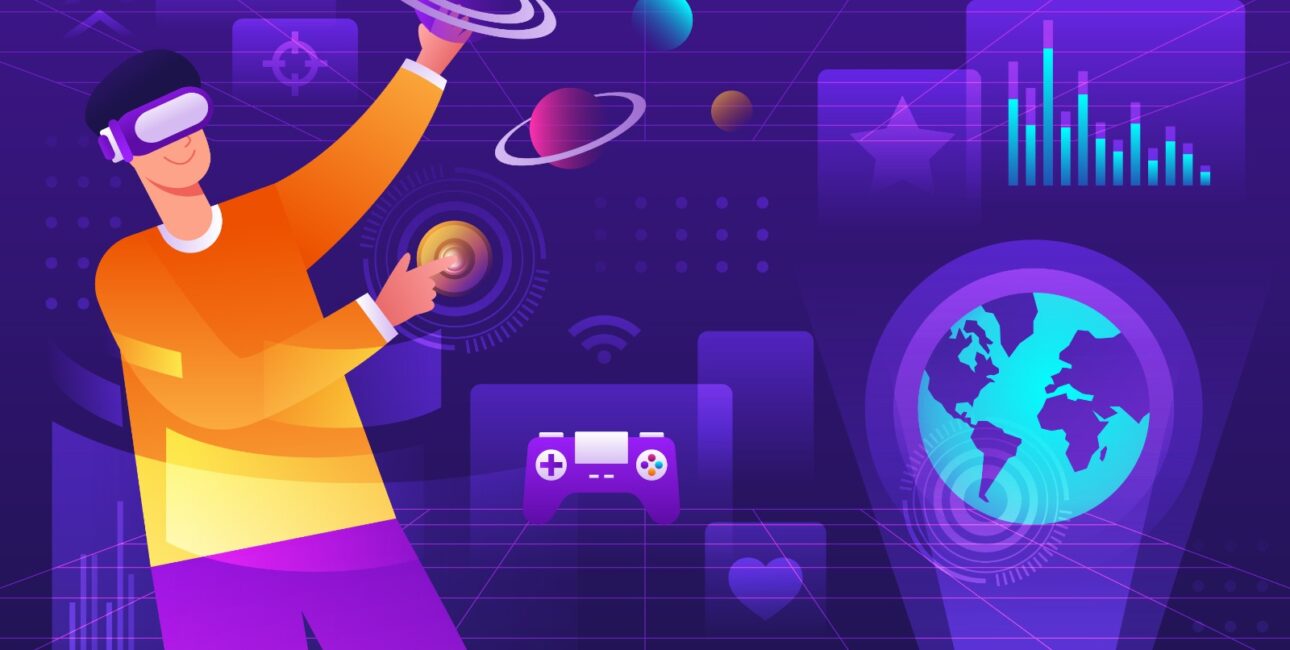
The workplace as we know it has already evolved dramatically since the pre-pandemic era. The rise of remote and hybrid work models has transformed how teams communicate and collaborate — yet what we see today is only the beginning. The next frontier lies within the metaverse — a concept first coined by Neal Stephenson in 1992 to describe a fully immersive virtual world powered by digital reality.
The metaverse represents a vast, interconnected network of three-dimensional virtual spaces where individuals can interact, collaborate, transact, and socialize using their digital avatars. While the technology is still in its early stages, it’s rapidly gaining traction as organizations and investors pour resources into shaping the future of digital work and collaboration.
Industry analysts estimate the metaverse market opportunity at nearly $1 trillion, with far-reaching implications across every sector of the global economy. The way we work, meet, and learn will soon look very different in this new digital realm.
Exploring the Possibilities of the Metaverse Workplace
1. Meetings and Collaboration
In the metaverse, employees will be able to instantly gather in immersive virtual spaces — no travel or video lag required. Meetings will go beyond static video grids to become fully interactive, three-dimensional experiences that foster deeper engagement and collaboration.
Design and engineering teams, for instance, could co-create products or prototypes in real time, manipulating 3D models together as if they were in the same physical room. The metaverse will also enable social connection and informal interaction, replacing digital fatigue with virtual “watercooler” moments, shared game breaks, and immersive relaxation zones like a forest trail or ocean-view lounge.
Platforms such as NextMeet, an India-based immersive collaboration solution, are already pioneering this future — allowing professionals to work, learn, and network through avatars in engaging, less-isolated environments.
2. New Career Opportunities
Just as the internet era gave rise to roles like digital marketers, social media managers, and UX designers, the metaverse will introduce an entirely new wave of professions.
Businesses will need virtual architects, avatar designers, metaverse event planners, and AI-driven community managers to shape experiences and support operations in these 3D spaces. At the same time, independent creators will thrive by designing and selling digital goods — from virtual fashion and artwork to music, furniture, and collectibles — all powered by blockchain technology.
This evolution will also redefine digital entrepreneurship, enabling creators to monetize their skills directly within virtual economies.
3. Global Talent Acquisition
The metaverse will remove geographical barriers to hiring, giving organizations access to a truly global talent pool. With interviews and onboarding taking place in virtual environments, recruiters and candidates will interact through lifelike avatars, making the hiring experience more personal and immersive.
As Microsoft’s Jared Spataro, Corporate Vice President for Modern Work, points out:
“How you represent yourself in the virtual world will be just as important as how you present yourself in the real one.”
This shift will emphasize digital identity and presentation, changing how candidates showcase their personalities and professional presence during recruitment.
4. Upskilling and Learning in Virtual Worlds
The metaverse has the potential to revolutionize training and professional development. Powered by AI and immersive technologies, organizations can design experiential learning programs where employees practice real-world scenarios in risk-free virtual settings.
AI-driven digital coaches will guide employees through personalized learning paths, offering instant feedback and adaptive challenges. From sales simulations and leadership coaching to complex technical training, immersive learning will shorten the time required to gain new skills and boost retention through active engagement.
Companies like Bosch and Ford Motor Company are already using VR-based programs to train technicians in electric vehicle maintenance. Meanwhile, Accenture has created its own metaverse campus — the “Nth Floor” — where employees from across the globe can collaborate, network, and participate in training sessions in a shared digital space.
As Satya Nadella told Harvard Business Review,
“Accenture is building what they describe as the Nth floor in Altspace — a place where anyone across Accenture globally can drop in and connect at any time.”
This approach represents the future of corporate learning — immersive, inclusive, and globally accessible.
Challenges in Building the Metaverse Workplace
Despite its enormous potential, the metaverse faces several challenges that must be addressed before it becomes mainstream in the corporate world.
- Fragmented Ecosystem: The metaverse today exists as multiple independent worlds rather than a unified network. Without interoperability, these digital environments risk becoming isolated silos.
- Governance and Compliance: Virtual workplaces will need robust HR and legal frameworks to manage behavioral standards, avatar representation, and employee well-being.
- Skill Transferability: Credentials, experience, and qualifications earned in one virtual platform must be recognized across ecosystems to support career progression and educational credibility.
- Workplace Infrastructure: Enterprises must rethink their policies, cybersecurity, and digital infrastructure to support a truly hybrid workforce that operates across physical and virtual spaces.
- Privacy vs. Personalization: As metaverse platforms begin to capture emotion-based data through sensors and headsets, balancing personalization with privacy will become a key ethical concern.
These challenges underscore the need for responsible innovation and clear governance models to make the metaverse a safe, productive, and equitable place to work.
Opportunities for Startups in the Metaverse Era
According to Bill Gates, the shift to the metaverse will happen faster than most expect. As he wrote on his blog:
“Within the next two or three years, most virtual meetings will move from 2D camera grids to the metaverse — a 3D space with digital avatars.”
For startups, this transformation presents immense opportunities. Rather than replicating existing office models in VR, innovative startups can carve out niche solutions — from virtual workspace design to blockchain-based digital asset management, VR collaboration tools, and immersive training platforms.
Startups are known for their agility, creativity, and ability to challenge established norms — all of which are vital in shaping the metaverse economy.
Whether you’re conceptualizing your first product or scaling an existing one, the Rekordist Fintech team of experts can help you design, develop, and deploy cutting-edge metaverse solutions. With a proven track record in emerging technologies, Rekordist empowers startups to navigate new markets, secure funding, and accelerate growth in this next digital revolution.
✅ The future of work is not just remote — it’s immersive, interactive, and decentralized.
The metaverse will reshape how we collaborate, learn, and innovate — making digital connection more human than ever before.



